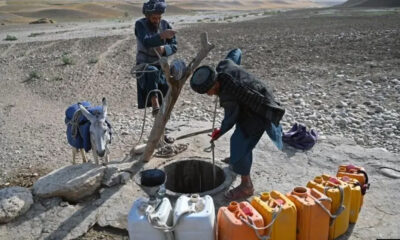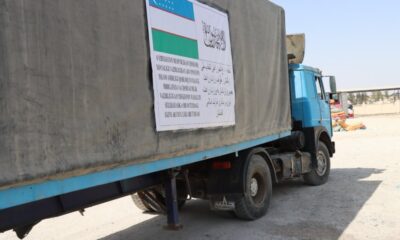Latest News
Khalilzad backs Trump’s move to restructure USAID
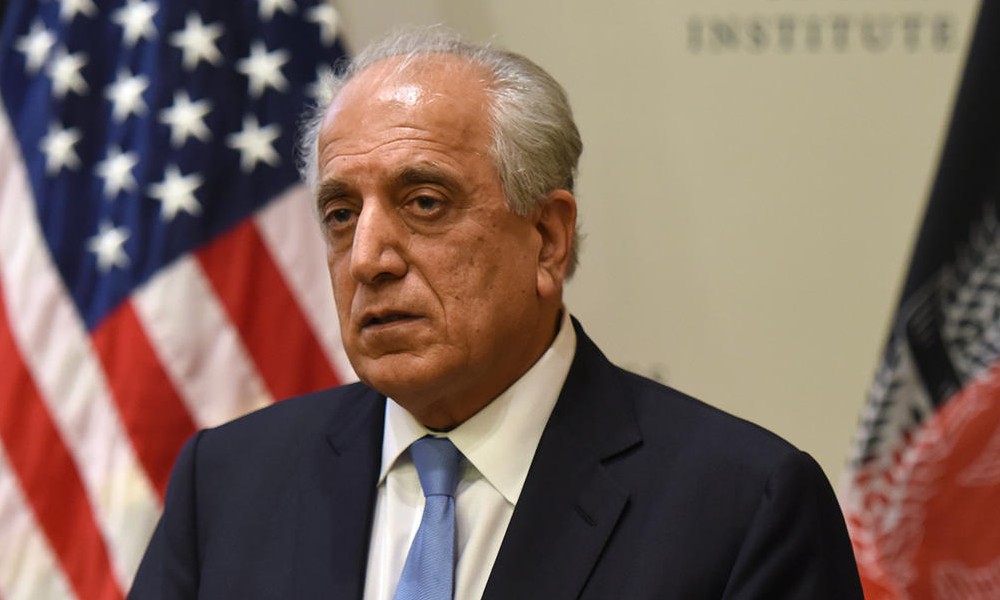
Washington’s former special envoy for Afghanistan Zalmay Khalilzad has come out in support of US President Donald Trump’s decision to dismantle USAID, which has provided billions of dollars to help fight poverty and promote development in developing countries around the world.
In a post on X early Tuesday morning, Khalilzad spoke out about the agency and said it has “significant issues and needs an in-depth review and change.”
He said in his post that after his own “very mixed experiences with them as ambassador to Afghanistan and Iraq,” he wrote in his book, in 2016, ‘The Envoy’ that in order to enable the strategic use of development programs, USAID should be split.
“The capabilities for emergency humanitarian and disaster relief should be separated from USAID’s development functions,” he said, adding that these functions should be integrated into the political and economic spheres of the US State Department.
“It makes no sense to separate programs to strengthen governance and economic performance in developing countries from the department charged with shaping the overall bilateral relationship,” he stated in his book.
He noted that this change would more readily integrate development activities into US strategy, inject operational capabilities into the Foreign Service, and accelerate the needed change in the State Department’s culture.
“The current practice of relying on U.S. contractor firms to carry out development programs needs to change. In the 1950s and 1960s, USAID, in fact, had a great deal of specialized development expertise in such areas as infrastructure development and agriculture.
“Direct contracting with local firms in host countries would also wean the United States off the least effective of the US contractors, with their exorbitant overhead.”
Chaos in aid sector
Trump’s overhaul of US foreign assistance has led to chaos in the aid and development field, leaving hundreds of contractors in a severe financial crunch with some already having to lay off staff and others facing millions of dollars in unpaid invoices.
Hours after coming into office on January 20, Trump ordered a sweeping review of almost all US foreign aid and tasked billionaire Elon Musk, who has falsely accused USAID of being a “criminal” organization, with scaling down the agency.
Since then, dozens of USAID staff has been put on leave, hundreds of internal contractors have been laid off, while Musk’s so-called Department of Government Efficiency (Doge)
employees have gutted the agency that is Washington’s primary humanitarian arm, providing billions of dollars worth of aid worldwide.
Blanket stop-work orders that were issued by the State Department have thrown the aid industry into panic, both at home and abroad as the contractors usually front the costs and then bill the US government.
An official at a USAID implementing partner, who spoke to Reuters on condition of anonymity due to fear of retribution, said the company had to furlough hundreds of US-based staff and were owed over $50 million by the US government in invoices from November and December that are past due.
The official, along with others in a similar predicament, said they might have to go to court over the outstanding balances.
Trust Ruptured
Many of the USAID staff and contractors have expressed shock at how quickly the Trump administration moved to fire people.
In fiscal year 2023, the United States disbursed $72 billion of aid worldwide on everything from women’s health in conflict zones to access to clean water, HIV/AIDS treatments, energy security and anti-corruption work.
It provided 42% of all humanitarian aid tracked by the United Nations in 2024.
The funding, less than 1% of its total budget, is instrumental in Washington’s effort to build alliances around the world, reinforce its diplomacy and counter the influence of adversaries such as China and Russia in the developing world.
Trump ordered the global freeze on most US foreign aid as part of his “America First” policy.
Field hospitals in Thai refugee camps, landmine clearance in war zones, and drugs to treat millions suffering from diseases such as HIV are among the programmes at risk of elimination.
Speaking more broadly about cutting US expenses and fraud, Musk estimated the Trump administration can cut $1-trillion from the US deficit next year.
He asserted, for example, that “professional foreign fraud rings” were stealing vast sums by masquerading as or creating fake digital US citizens.
Musk did not offer any evidence to support his fraud claim or explain how he reached the amount of $1-trillion.
Latest News
Afghan energy minister leaves for international energy conference in Uzbekistan
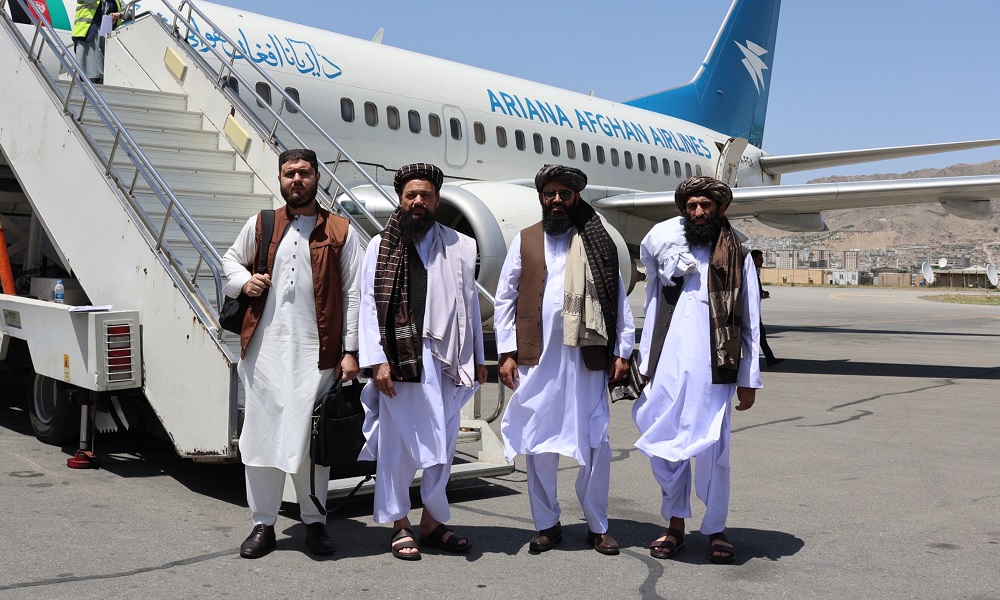
Acting Minister of Energy and Water Abdul Latif Mansoor has left Kabul for Tashkent to participate in the fifth Uzbekistan International Energy Conference.
The event is part of Energy Week of Uzbekistan 2025 that is focused on regional partnership for sustainable energy. It will be held from May 13 to 15.
The aim of the summit is to strengthen regional cooperation, attract investment in joint energy projects, exchange experiences and promote green technology, the Ministry of Energy and Water said in a statement.
During the conference, Mansoor is expected to emphasize expanding cooperation with regional countries, attracting foreign investment and using successful international experiences in the field of energy resource management, the statement said.
Representatives of regional countries, including Uzbekistan, Kazakhstan, Turkmenistan, Russia, as well as organizations s such as the International Atomic Energy Agency and the World Bank, are expected to attend the conference.
International Sports
IPL 2025: Update!
Indian media outlets reported that the BCCI has informed the ten IPL franchises to call back all their foreign players

The Indian Premier League (IPL) Governing Council will reportedly meet today, Monday, May 12, over the resumption of IPL 2025.
According to Cricbuzz, the Board of Control for Cricket in India (BCCI) might also announce the roadmap later in the day.
On Monday evening however, some Indian media outlets reported that the BCCI has informed the ten IPL franchises to call back all their foreign players, as a decision on the resumption of the 18th edition of the cash-rich league is coming soon.
However, no official announcement has yet been made by either the BCCI or the IPL council.
The last time the IPL was stopped midway through the tournament was during the COVID-19 pandemic. The IPL 2021 season, which kicked off in April, had to be suspended due to a national lockdown. The second half took place in the UAE later that year.
Speaking to local media after the decision to suspend the tournament Devajit Saikia said: “In the next few days, we will begin consultations with the franchises, broadcasters, sponsors and the state associations slated to host the remaining matches before crystallizing a decision on the league’s resumption.
“Given the importance of IPL at this juncture, it will also be prudent and necessary to take the nod of the Government of India before finalising the time for its restart.”
The board made the decision a day after calling off the Punjab Kings-Delhi Capitals match in Dharamsala due to security concerns.
The suspension however will have a stark impact on foreign players. Already a number of them have indicated that its unlikely that they will feature in the remaining games of the season.
Among those are Australian pacers Mitchell Starc and Josh Hazlewood.
Both players have already returned to Australia, and their participation in the remaining 12 league matches and the playoffs – if their franchises qualify – remains doubtful.
Australia captain Pat Cummins, Starc and Hazlewood’s colleague in the pace department, might not enjoy that luxury as he captains Sunrisers Hyderabad and his availability is crucial for the franchise.
While tensions have eased between New Delhi and Islamabad after the two countries agreed to a ceasefire on Saturday, India’s government is expected to wait for a few more days before giving the BCCI the go-ahead to resume the tournament.
Latest News
OCHA warns of intensifying water crisis in Afghanistan
OCHA noted that while some areas of Afghanistan have seen rainfall approaching average levels, overall precipitation remains significantly below normal.
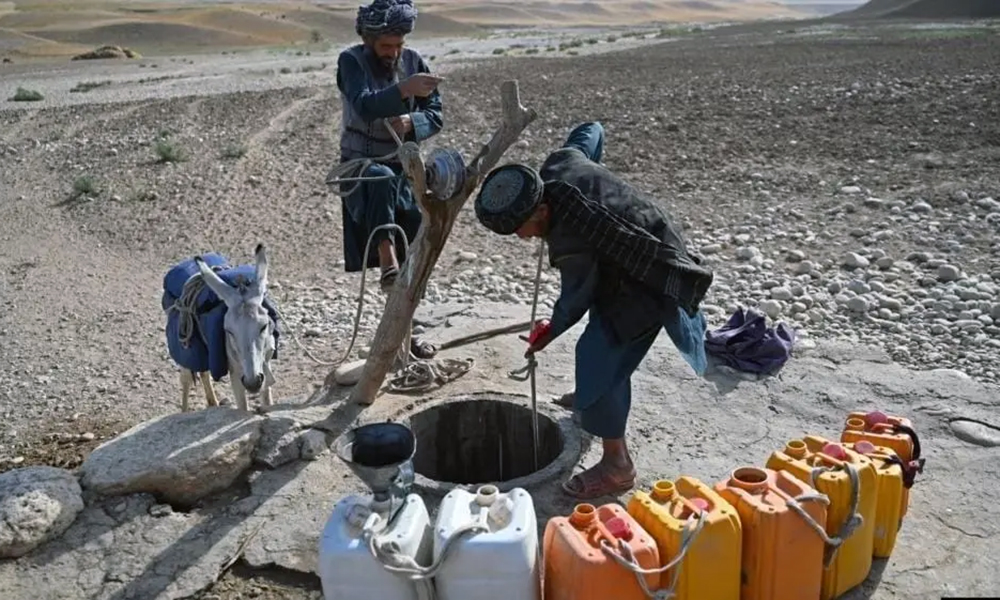
The United Nations Office for the Coordination of Humanitarian Affairs (OCHA) has issued a warning about the worsening water crisis in Afghanistan, citing below-average rainfall across much of the country.
In a recent report, OCHA noted that while some areas of Afghanistan have seen rainfall approaching average levels, overall precipitation remains significantly below normal.
Snowmelt volumes in most river basins are also lower than average and continuing to decline—further aggravating the water shortage.
OCHA highlighted that data from the Agricultural Stress Index (ASI) indicates markedly reduced vegetation growth in many regions, signaling the onset of drought conditions.
The agency also reported that soil moisture at root depth is critically low in most parts of the country, with the exception of some northern and northeastern provinces.
This poses serious concerns for agricultural productivity.
OCHA added that land surface temperatures across Afghanistan are above average, apart from limited areas in the northeastern provinces.
Forecasts suggest that above-average temperatures and below-normal rainfall are likely to persist in the coming months.
These conditions, the report warns, are expected to intensify the water crisis, leading to further declines in crop yields and damaging pasturelands vital for livestock.
As of March, this year, the provinces of Faryab and Jawzjan in northern Afghanistan have been identified as the most severely affected by reduced precipitation and rising temperatures. Other areas at critical risk include Helmand in the south, Herat in the west, Kunduz in the northeast, and Nangarhar in the east.
Afghanistan has been grappling with severe drought and declining rainfall for several consecutive years.
The prolonged droughts have depleted water supplies across the country, including in major urban centers, leaving many communities with limited access to safe drinking water.
The country is also increasingly vulnerable to extreme weather events, including flash floods, and remains one of the most climate-vulnerable nations in the world—despite contributing minimally to global greenhouse gas emissions and climate change.
-

 Regional5 days ago
Regional5 days agoIndia dismisses report of Pakistan downing jets as “disinformation”
-

 Sport4 days ago
Sport4 days agoAriana Television to broadcast 4th edition of Afghanistan Futsal Premier League
-

 Latest News4 days ago
Latest News4 days agoTAPI pipeline to reach Herat by end of 2025: Ministry
-

 Latest News4 days ago
Latest News4 days agoNearly one-third grapple with hunger in Afghanistan: WFP
-

 Sport4 days ago
Sport4 days agoIPL 2025: Dharamsala match abandoned due to security concerns
-

 Latest News4 days ago
Latest News4 days agoUzbekistan, Poland discuss cooperation over Afghanistan
-

 Regional4 days ago
Regional4 days agoIndia says military stations attacked by Pakistan drones and missiles
-

 Tahawol5 days ago
Tahawol5 days agoTahawol: Ministry of Labor and Social Affairs’ activities reviewed








